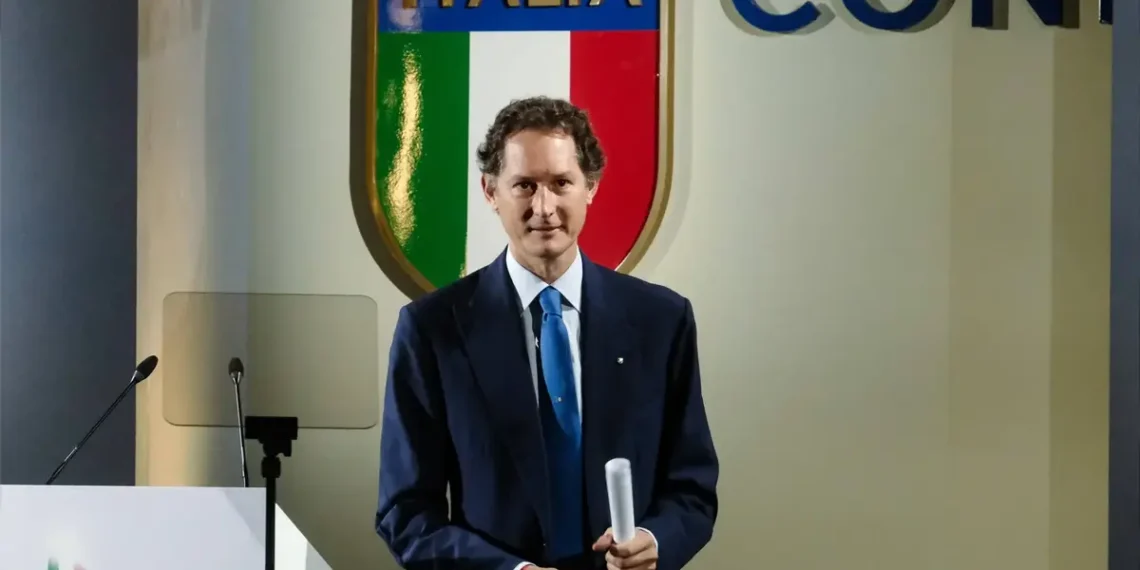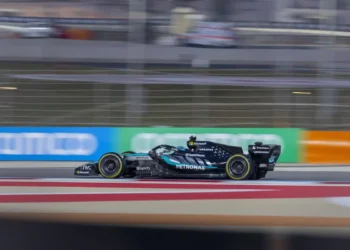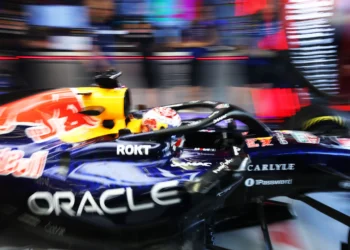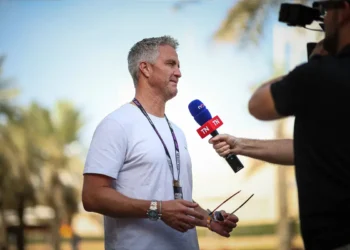Title: Ferrari’s Leadership Crisis: A Recipe for Disaster Amidst Internal Turmoil
In the wake of a disastrous performance at the São Paulo Grand Prix, Ferrari is teetering on the brink of chaos, and the last thing the iconic Scuderia needs right now is a civil war within its ranks. Chairman John Elkann’s recent comments have ignited a firestorm of controversy, as the team grapples with its dismal standing in the Formula 1 championship and the pressure to perform intensifies.
After a weekend that saw Lewis Hamilton lament the team’s struggles, many believed the focus should shift to the promising talent of Oliver Bearman, poised to step into the spotlight at Haas. Yet, rather than rallying the troops, Elkann took a combative stance, openly criticizing both Hamilton and teammate Charles Leclerc for their candid remarks to the media. Following a painful double-DNF in Brazil, Elkann’s frustration boiled over as he demanded more from his drivers, insisting they “talk less” and focus on the races ahead.
Hamilton, who described his season as a “nightmare” and branded the team’s fourth-place position in the constructors’ championship a “disaster,” has every reason to feel aggrieved. Ferrari now finds itself a staggering 36 points behind Mercedes, the very team it battled for supremacy just a year ago, and a mere four points ahead of Red Bull. Leclerc echoed these sentiments, describing the campaign as “frustrating” and stressing the need for a flawless execution in the remaining races to salvage any hope of reclaiming second place.
Elkann’s remarks, however, may have done more harm than good. His call for unity amidst discord appears hypocritical, as he placed blame squarely on the drivers while failing to acknowledge the systemic issues plaguing the team. While he praised the mechanics for their pit stop performance and acknowledged improvements in the car’s design, he seemed oblivious to the fact that mere technical adjustments cannot mask the fundamental flaws that have hindered Ferrari’s competitive edge.
In a stark contradiction to his earlier attempts to support team principal Fred Vasseur, Elkann’s approach has now complicated the Frenchman’s position. After being granted a contract extension to quell rumors of his potential departure, Vasseur now faces the fallout from Elkann’s incendiary comments, which only serve to deepen the cracks in an already fragile organization.
As tensions rise, both Hamilton and Leclerc took to social media to respond. Hamilton stood firm, declaring, “I back my team. I back myself. I will not give up. Not now, not then, not ever.” Meanwhile, Leclerc emphasized the need for unity, stating, “It’s clear that only unity can help us turn that situation around in the last three races.” Their words suggest a desperate plea for coherence in a tumultuous environment, highlighting the urgency of the situation.
Ferrari’s predicament is not just about the numbers on a scoreboard; it’s a reflection of a team in crisis. As the clock ticks down on the season, the Scuderia must find a way to bridge the growing divide and restore a sense of purpose if it hopes to salvage any pride from this tumultuous campaign. With the specter of civil war looming, the question remains: can Ferrari rise from the ashes, or will this iconic team be consumed by its own internal strife? The answer may very well dictate the future of Formula 1’s most storied franchise.










